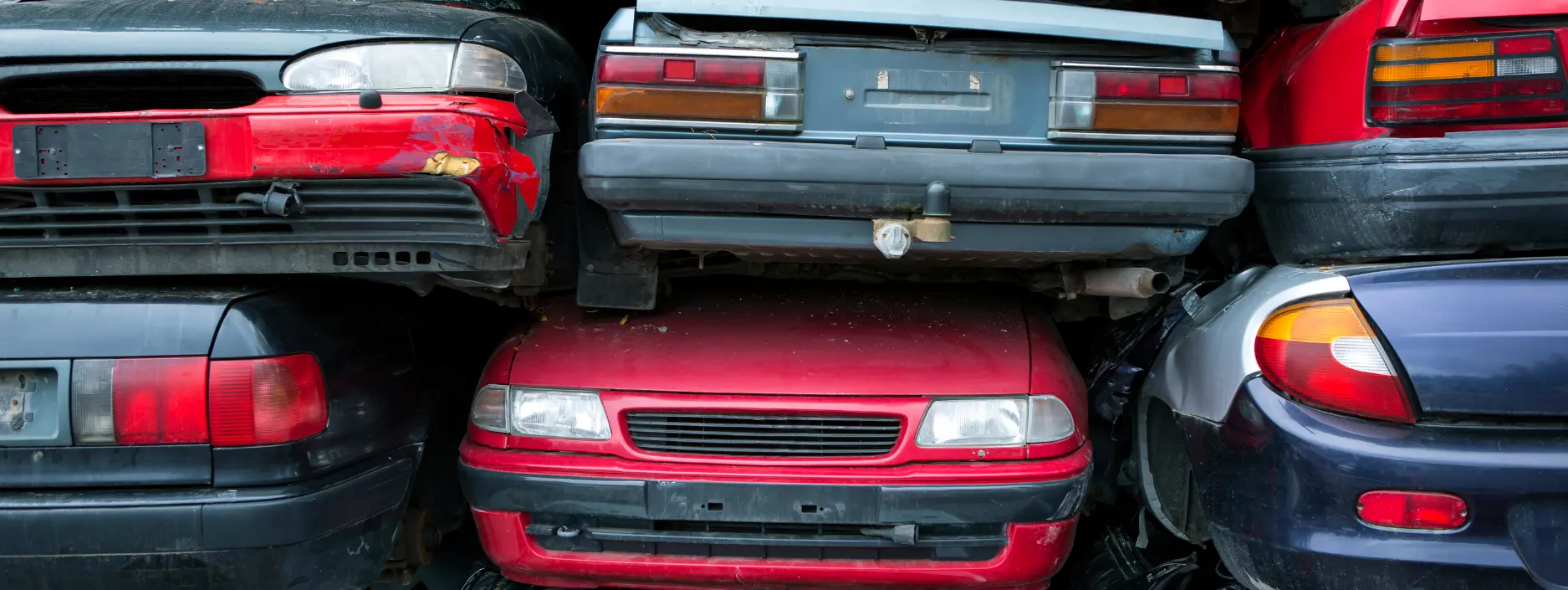Parking is one of the more technical elements of driving, and one that we should be spending a lot of time refining during the course of our lives spent driving. From the degree of lock that’s needed on the steering wheel, to utilising your pedals effectively, and keeping just far enough away from any surrounding vehicles or obstacles, it’s not always easy business!
Parking confidence (or a lack of it!) seems to be a nationwide issue, as while a good portion of time is dedicated to learning different parking manoeuvres while preparing to pass the driving test, almost half (48%) of drivers in the UK admit to feeling like they could benefit from further training or assistance when it comes to their parking prowess.
Most drivers will undoubtedly have found themselves near a car that’s parked too far over in a bay or is left hanging in the middle of the road rather than tightly tucked in by the curb, and while this can be frustrating, it’s often even worse to be the driver on the other end. Around 17% of drivers surveyed said they often feel stressed or worried about having to park, with 14% feeling embarrassed about their parking, so there are clearly millions of people on the road who dread the end of every journey.
To find out just how much we struggle with ‘parking anxiety’ as a nation, we asked drivers across the UK about their parking habits…
How Well Are We Taught To Park?
Anyone who passes a driving test in the UK is required to complete a manoeuvre, which may include a parallel park at the side of the road or parking in a parking bay, so they’re usually a significant focus during driving lessons. As a result, we’d assume that people are taught to park well in order to complete the test, but it seems that many people, and therefore their instructors, are falling at the first hurdle as a quarter (23%) of drivers feel like they weren’t taught these manoeuvres well enough.
Although we’d assume that our skills may become a little rusty over time as we slip into bad habits, it’s actually those who passed their tests more recently who feel like they could do with some additional support; 62% of those who passed their tests since 2000 said they could do with support, compared to the smaller 27% of those who passed before 1970 – a huge 35% difference.
We thought we’d also go one step further to discover the owners of which car brand are most likely to be lacking in confidence when it comes to their parking and it’s BMW drivers coming out on top.
Of the 29 brands analysed, owners of the popular German manufacturer feel they need support with parking the most, with just over two thirds (68%) of them agreeing with this sentiment. Audi drivers follow in second (64%), with Mercedes drivers following in third place with 63% of owners unsure of their parking.
| Rank | Brand | % who need further training/assistance with parking |
| 1 | BMW | 68% |
| 2 | Audi | 64% |
| 3 | Mercedes | 63% |
| 4 | Honda | 63% |
| 5 | Toyota | 51% |
| 6 | Kia | 48% |
| 7 | Citroen | 47% |
| 8 | Ford | 47% |
| 9 | Hyundai | 46% |
| 10 | Fiat | 45% |
The Most Challenging Manoeuvre
When it comes to the manoeuvres themselves, parallel parking is often considered to be one of the trickiest. The move typically involves driving past a space, and pulling up parallel to it, before reversing back into the space using steering and wheel checks to put the car into place. Misjudging the distance to the curb, using an incorrect amount of lock on the steering wheel and not aligning correctly with the car in front are among some of the most common issues encountered (as well as attempting to squeeze into a space that’s a bit too tight!), and it’s often a move that’s done while moving out of the flow of traffic, which can make drivers feel even more under pressure.

As a result, 13% of drivers in the UK admitted to lacking confidence with the move, the highest of any manoeuvre. However, those aged 25-34 are the most confident with parking in a space at the side of the road, with three quarters (74%) saying they feel happy to park their car in parallel.
On the other end of the scale, front bay parking – where drivers park nose-first in a bay space, then reverse out when leaving – is the manoeuvre that drivers are most confident with, with just 3% saying they lack confidence with this form of parking.
| Rank | Manoeuvre | % of drivers who feel unconfident |
| 1 | Parallel parking | 13% |
| 2 | Reverse bay parking | 9% |
| 3 | Parking on an incline | 6% |
| 4 | Front bay parking | 3% |
The Nation’s Bad Parking Habits
Parking can definitely be stressful, particularly if you’re in a rush, or can feel the eyes of other drivers on you, but it’s clear that parking anxiety is making many of us go out of our way to avoid such situations.
More than half (58%) said that they search for a parking bay that has free spaces either on one, or both sides, to make bay parking a little less stressful and avoid the need to ‘straighten up’, which 51% of drivers said they do while attempting to park.
Though it can be quick to find a space with a little more breathing room on each side when bay parking, 1 in 5 (21%) drivers said that they will happily park further away than needed to avoid the need to parallel park, potentially increasing their journey time as they walk from wherever they eventually feel confident to park.

It seems that the anxiety around parking also leads many people to spend an increased amount of time planning their journeys, with 17% saying that they research the parking arrangements when visiting a new place, while 8% said they’ve previously sought alternative transport to a location or event to avoid the need to park altogether. While this might sound insignificant, that 8% amounts to more than four million drivers, choosing to avoid driving because of their parking nerves!
Damaging your vehicle by getting that little bit too close to another car, the curb or obstruction like a streetlight is one of the worst-case scenarios when parking and is something that just over 1 in 10 (11%) of drivers are familiar with, after scratching or denting their vehicle while parking.
However, there are some cities in the UK where drivers are much more likely to damage their vehicles while parking than others – 15% of drivers in Glasgow admitted to doing so, making them the least careful drivers in the country when it comes to parking. Drivers in Nottingham follow in second, with Bristol-based drivers in third. At the lower end, drivers in Southampton appear to be the most careful, with just 4% saying they’ve previously damaged their cars while completing a parking manoeuvre.
The Cities With The Least Careful Parkers
| Rank | City | % who have damaged their car while parking |
| 1 | Glasgow | 15.0% |
| 2 | Nottingham | 14.5% |
| 3 | Bristol | 13.8% |
| 4 | London | 12.5% |
| 5 | Leeds | 11.5% |
| 6 | Manchester | 10.2% |
| =7 | Brighton | 10.0% |
| =7 | Newcastle | 10.0% |
| 9 | Norwich | 9.8% |
| 10 | Edinburgh | 9.7% |
The B Plate: For Those Who Can’t Park
So, with the nations parking problems in mind, there’s only one thing to do: that’s right, following in the footsteps of the ‘L’ and ‘P’ plates, we thought why not add a third plate to the list?
Introducing, the ‘B’ plate.

With a ‘B’ to signify ‘bad parking’, we’ve created some bold red-on-white stickers, which drivers of any age can affix to their vehicle to quite simply warn others that they’re not the most confident when it comes to parking. Whether as a bid for forgiveness or in an attempt to relieve some pressure while completing a manoeuvre, drivers will be able to tackle their driving deficiency head on.
Created like other ‘L’ and ‘P’ plates, the stickers are also easy to remove, so whenever you’ve conquered your parking fears, you can easily drop the B plate!

Scrapping and salvaging cars is our main gig, so we’re giving people the opportunity to sample this limited run of ‘B’ plates for free, to see how popular they are before potentially rolling them out more widely in the future.
If you are interested in being one of the first drivers to get your hands on a ‘B’ plate, or think you have the perfect person to gift it to, simply fill out the form below and if you’re lucky, one may find its way to you in the post.
We’ll then be reviewing interest in the plates, with an aim to launching them more widely in 2025.
Terms and conditions
- Scrap Car Comparison reserve the right to close the interest form at a time of their choosing
- Quantities of the ‘B’ plate are currently limited, so a completed enquiry form does not guarantee a free sample
- Name, address and e-mail are only required for postage/contact purposes surrounding ‘The B Plate’ and will not be used for other means by Scrap Car Comparison or any other party
Media:
Data gained via a survey to 1,391 drivers with a full UK driving licence, aged over 17 years old. Data correct as of October 2024.
If you’re a journalist and are interested in finding out more about the launch of the B plates, or any of the data used above, simply e-mail: [email protected]

